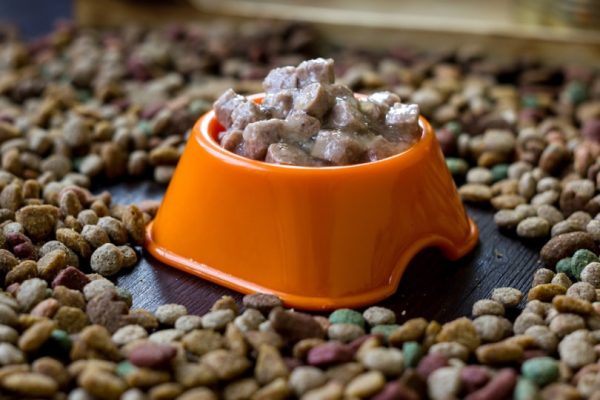In this article
View 3 More +Luckily, because our canines are omnivores, just like us, we can enjoy many of the same foods. There are quite a few food items that are interchangeable.
So, since you likely know that you can share quite a few fruits, veggies, grains, and meats with your canine counterpart, where exactly does pineapple lie? You will be happy to know that your dog can eat pineapple in moderation, and we are here to give you the lowdown on all of the health benefits associated with it.

Dogs Can Eat Pineapple in Moderation
Absolutely our dogs can delight in pineapple themselves. Of course, since your dog needs to eat their own species-specific daily dose of dog food, you should always limit their pineapple rations.
But if you’re just snacking, you can certainly pop a piece over their way and they can gobble it up without consequence.

Health Benefits of Pineapple for Dogs
So, what does this tantalizing yellow fruit do for your pooch? Pineapple has a laundry list of health benefits for people and pets alike—here are the main ones.
Pineapple Has Anti-inflammatory Properties
Pineapple contains bromelain, a digestive enzyme. Bromelain has anti-inflammatory and pain-relieving properties. Though not specifically studied in dogs to date, it’s always best to keep inflammation levels low!

Aids in Digestion
Because pineapple is high in fiber, it can help regulate your dog’s digestion. Fiber can improve stool quality and also the feeling of being full, therefore potentially adding multiple benefits.
Contains Powerful Antioxidants
Antioxidants remove free radicals from the body. As our dog’s bodies undergo normal day-to-day metabolic processes, free radicals are created. Since pineapples are full of flavonoids and phenolic acid, they protect cells from damage and may help reduce the risk of cancer.

Downfalls of Pineapple for Dogs
Of course, you cannot have the good without the bad. While pineapples are very healthy if served in moderation, there are negative effects as well. Here are just a few.
Acid Levels
Pineapples are highly acidic. Typically, they score a 3 to 4 on the pH scale. If your dog eats large quantities of this fruit, it can cause gastrointestinal upset. The stomach pain can cause your dog to feel uncomfortable. New foods may also lead to diarrhea in some dogs.

Natural Sugar
There is quite a bit of natural sugar in pineapple—approximately 10 grams per 100 grams of fruit. If your dog eats pineapple frequently, this extra sugar in the diet can quickly lead to weight gain.
Weight gain is already a big problem among dogs, especially after they are spayed or neutered. There’s no need to add to the problem. Feed pineapple in moderation!

How Much Pineapple Should You Feed Your Dog?
Realistically, you should only feed your dog a few pineapple chunks at a time. They might have an upset stomach if they eat too much at once. Portioning can be different depending on your dog’s size.
Make sure to only give your dog fresh pineapple. Canned pineapple is even higher in sugar than fresh pineapple, so it should ideally be avoided.
Ultimately, you can give your dog a bite or two as a snack but keep the rest out of their food bowl.

Final Thoughts
Pineapples certainly have a ton of nutrients and can be very beneficial to our canine companions. So now that you know your pup can delight in this tropical fruit, you can incorporate it into their diet occasionally. Keep in mind that everything is about moderation, and you should always portion your pup’s snacks correctly.
Featured Image Credit: Phoenix Han, Unsplash




















